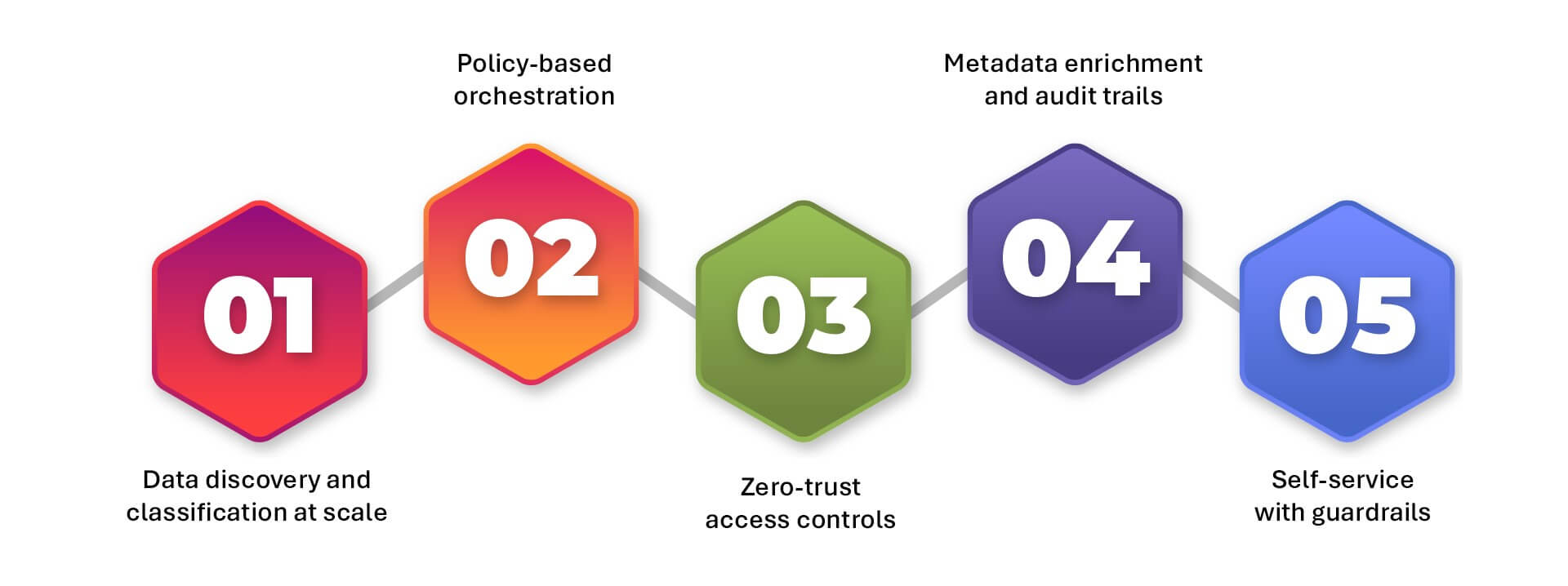In 2025, a seismic shift is underway in how nations and enterprises treat data. Once considered a byproduct of operations, data is now central to economic strategy, national security, and digital diplomacy. And nowhere is this transformation more pronounced than in the Middle East. Governments across the region are no longer passively adopting global data governance norms—they’re rewriting them entirely.
Welcome to the new era of data sovereignty. Where the question isn’t just “What data do we hold?” but “Whose rules does it obey?” And for businesses, this shift isn’t just a compliance concern—it’s a strategic imperative.
The Geopolitics of Digital Control
At its core, data sovereignty is about control. It’s the assertion that data generated within a country’s borders should be subject to its local laws, not those of a foreign power or a globally dispersed cloud provider. This principle is accelerating in a multipolar digital world. Over 140 countries now enforce some form of data localization or sovereignty law, and the Middle East is emerging as a trendsetter.
Saudi Arabia’s draft Global AI Hub Law, for instance, doesn’t just advocate data localization—it introduces new concepts like data embassies, sovereign digital sandboxes, and AI accountability zones. The UAE’s Personal Data Protection Law (PDPL) goes further by mandating purpose-specific consent and establishing a Data Office that governs AI deployments in sensitive sectors like health, finance, and government.
These policies signal a future where cross-border data flow is no longer the default—it’s conditional. And that condition is sovereignty.
Governance Models Are Breaking Under Pressure
Traditional data governance was designed for efficiency, not geopolitics. It’s built on assumptions that data can flow freely across regions, that central policies can be applied globally, and that cloud infrastructure can be optimized for cost over compliance. These assumptions no longer hold.
Now, multinationals operating in the Middle East must reckon with:
Infrastructure fragmentation: Enterprises are forced to replicate storage, processing, and analytics infrastructure across jurisdictions to satisfy localization rules. This leads to cost inefficiencies, operational overhead, and inconsistent governance.
Policy inconsistency: With each country interpreting “sovereignty” differently, managing policies across geographies becomes a legal minefield. What’s compliant in Abu Dhabi might be illegal in Riyadh.
Security paradoxes: Centralized data lakes that were once seen as a compliance win are now liabilities. If a breach crosses borders, it triggers multi-jurisdictional enforcement actions—a scenario no CISO wants to navigate.
The more sovereign the world becomes, the less effective traditional governance models are. But rejecting sovereignty isn’t an option. The solution isn’t to fight the tide—it’s to build boats that float differently.
The Case for Federated Data Governance
The answer lies in a federated model of data governance—one that treats local compliance as a feature, not a constraint. Instead of centralizing everything and forcing the world to adapt, federated governance builds governance at the edge, closest to where data is created and consumed.
In a federated approach:
- Data residency is respected by default. Every data set lives and dies under the jurisdiction it was born in.
- Governance policies are modular. They are applied contextually—based on geography, data type, risk level, and usage purpose.
- Control is decentralized. Instead of relying solely on central data teams, federated governance empowers data owners—whether in Abu Dhabi or Amsterdam—to apply policy, enforce access, and monitor usage.
- Compliance is continuous. Using policy-based engines and AI/ML-driven insights, data environments adapt in real time to new laws, threats, and usage patterns.
This model doesn’t just comply with sovereignty—it thrives in it.
Why It Works: Technical Foundations of Federated Governance
Federated governance isn’t just a theoretical model—it’s built on real technical components that modern data ecosystems must adopt.

- Data discovery and classification at scale: Tools must scan and categorize unstructured and structured data in real time, across on-prem, cloud, and edge environments. This is particularly critical in the Middle East, where over 80% of enterprise data is unstructured and growing at 30% YoY.
- Policy-based orchestration: Rather than hardcoded compliance rules, federated systems use flexible policy engines. These define how data is accessed, moved, retained, or deleted—based on geography, sensitivity, and user role.
- Zero-trust access controls: Fine-grained permissions, dynamic role-based access, and continuous identity verification ensure that only authorized users interact with sensitive data. This supports regional compliance like the UAE’s sectoral access restrictions.
- Metadata enrichment and audit trails: Sovereignty isn’t just about where data resides—it’s about proving you know where it’s been and who touched it. Federated models embed traceability at every touchpoint.
- Self-service with guardrails: Perhaps most crucially, federated governance democratizes data ownership. Instead of bottlenecks at central IT, business units—especially in highly regulated sectors like energy or banking—can take action within pre-approved governance boundaries.
Solutions like Zubin, Data Dynamics’ AI-powered self-service data management software, are already enabling this shift. By unifying data discovery, contextual classification, policy enforcement, and access control, Zubin creates a control plane that spans jurisdictions while remaining locally compliant. For CIOs and CISOs in the Middle East, this kind of agility is no longer optional—it’s existential.
Moving toward a federated, sovereignty-aware model isn’t just a compliance win—it unlocks real business value.
Enterprises see faster time-to-insight because data teams aren’t paralyzed by legal uncertainty. Regulatory fines and reputational risks are mitigated by design, not luck. Storage and cloud costs drop because data is intelligently tiered and redundant copies are minimized. And critically, trust is built—with regulators, with customers, and with internal stakeholders who finally feel in control of their data.
By 2026, 60% of multinational enterprises will implement federated governance frameworks to meet growing data sovereignty requirements without sacrificing digital agility.
This isn’t a trend. It’s the new rulebook.
Leading by Design: A Blueprint for Sovereign Innovation
What’s particularly compelling is that the Middle East isn’t merely reacting to global shifts—it’s leading them. Regional cloud providers are tailoring offerings to meet in-country data residency laws. Governments are funding sovereign data infrastructure—from Khazna in the UAE to NEOM’s AI cloud in Saudi Arabia. AI-first strategies are being built with data sovereignty at their core, not as an afterthought.
This creates a template for emerging economies worldwide. One where innovation, compliance, and sovereignty can coexist—if data governance evolves fast enough. With Zubin, digital governance moves from aspiration to execution—secure, sovereign, and future-ready.
To know more about Zubin and try it firsthand, visit – https://www.datadynamicsinc.com/






